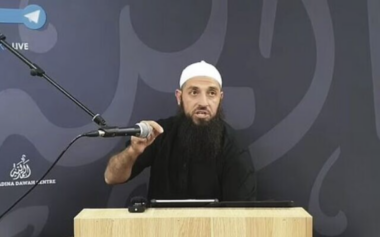21 January 2024
Australia used to be a human rights champion.
What happened, what next?
As a key player in the negotiations to the United Nations Declaration, which celebrated its 75th anniversary in 2023, Australia wholeheartedly subscribed to its text and its spirit. The drafters of the Declaration undertook the task of drafting the human rights principles that would establish pathways for world peace and individual human flourishing, with a “never again” attitude towards the horrors that the world had just lived through.
Thirty-two years later, Australia transformed the Declaration’s expression of principle into binding vows, when ratifying the International Covenant on Civil and Political Rights (ICCPR). This is an instrument of even greater importance, as a treaty, creating obligation and accountability to all other treaty parties, and supposedly providing lasting assurance to all Australians that their own country had linked arms with others across the globe to secure for them each of the human rights enshrined in the ICCPR.
Nothing has changed in the last 75 years to devalue the vital importance of those human rights. But it’s true to say that the weight and consequence of fundamental freedoms are of greatest value whenever it is necessary to entreat a country to observe them. The purpose of the ICCPR was to put rights within the reach of the individual when denied to them. These rights are not simply ornamental or aspirational but are meant to be real, tangible and assertable.
Unfortunately, successive Australian governments have failed to achieve ICCPR compliance in law, for freedom of religion and expression. In 1980, when Australia ratified the ICCPR, those particular freedoms were not especially under threat here, and certainly not in the way that they have been in recent decades.
Things are different now. Despite the well wishes at Christmas time, politicians and media commentators increasingly portray Christianity and Christians pejoratively, with little regard for truth and accuracy, making it difficult for Christians in schools and universities, in professional life, in politics and elsewhere to be open about their faith.
Most people would be unaware that the freedom of thought, conscience and religion which Australia promised in the ICCPR is simply not there when it should be: to prevent individuals being denounced for their beliefs or adversely treated; to allow them to avoid being compelled to act contrary to their conscience; to secure freedom for individuals to express their beliefs; and to give communal expression to their faith, for example through Christian schooling. Other faiths are similarly affected.
Anyone who thinks these fundamental freedoms are not at risk must be living under a rock given the hostilities we see shown towards people of faith both here and overseas. There is a greater urgency now to make these particular rights accessible to all Australians, so that everyone can be free to live out their beliefs openly and honestly, without discrimination.
The world is watching Australia right now, as the Albanese Government resumes the task of considering a Commonwealth “Religious Discrimination Bill”. For years now the call for proper protection for religious freedom has been opposed, stalled, thwarted, and postponed.
Australians should be rightly proud of the religious and cultural pluralism we enjoy. But instead of enjoying these fundamental human rights, people of faith find themselves subject to relentless, grinding opposition to the simple call for Australia to make good on its international law promises. There is no justification for this. It is morally unsupportable.
We believe that most Australians would rather be aligned with the legendary craftsman of the Universal Declaration, and the ICCPR, than the intolerant minority who do not value diversity of beliefs.
Vanessa Cheng, Executive Officer, Australian Association of Christian Schools
About us:
The Australian Association of Christian Schools (AACS) represents over a hundred Christian Schools located in every state and territory across the country, educating over 44,000 students.
Contact details:


